Just released: the paperback edition of Existence!
 Billions of planets may be ripe for life, even intelligence. So where is everybody? Do civilizations make the same fatal mistakes, over and over? Might we be the first to cross the mine-field, evading every trap to learn the secret of Existence?
Billions of planets may be ripe for life, even intelligence. So where is everybody? Do civilizations make the same fatal mistakes, over and over? Might we be the first to cross the mine-field, evading every trap to learn the secret of Existence?
An astronaut grabs a crystal lump that might be an alien artifact, sent across the vast, interstellar gulf, bearing a message. “Join us!” — it proclaims. What does the enticing invitation mean? To enroll in a great federation of free races?
Only then, what of rumors that this starry messenger may not be the first? Have others fallen from the sky, across 9,000 years? Some offering welcome. Others… warning!
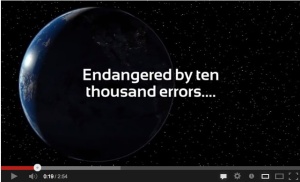 This masterwork of near-future, intensely realistic science fiction combines hard-science speculation and fast-paced action with deeply thoughtful ideas and haunting imagery.
This masterwork of near-future, intensely realistic science fiction combines hard-science speculation and fast-paced action with deeply thoughtful ideas and haunting imagery.
Sample several stand-alone novellas from Existence. See also the stunning trailer by Patrick Farley!
And yes, it is (a big) paperback. With e-book prices dropping also.
If you like the novel, feel free to leave comments on Amazon, Goodreads, and other sites where avid readers share book news.
Finally… and responding to requests from many Book Clubs, teachers and reading groups… here (with a few small spoilers) is a Readers Guide and Study Guide to this book. There. Promise kept.
===STUDY GUIDE QUESTIONS===
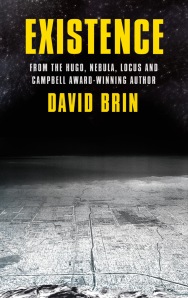 1. Existence is set in the year 2050. How does Existence compare to other movies or books set in this near-future timeframe? Is it more optimistic or pessimistic about humanity’s future?
1. Existence is set in the year 2050. How does Existence compare to other movies or books set in this near-future timeframe? Is it more optimistic or pessimistic about humanity’s future?
2. How do you imagine your life being different forty years from now?
–Think back to your grandparents’ lives forty years ago. What would they find most surprising about life nowadays?
–On the other hand, what things have remained relatively unchanged over that time? Would they be amazed or disappointed in this “future time” you now live in?
3. What do you think has changed more in that time? Technology? Or social matters like racism or our views of the environment?
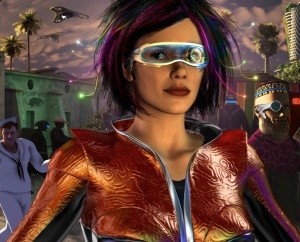 4. Tor is a new type of journalist, relying upon crowd-sourcing to instantly gather and evaluate news. How do you see the changing role of traditional media as the “news” moves in this direction?
4. Tor is a new type of journalist, relying upon crowd-sourcing to instantly gather and evaluate news. How do you see the changing role of traditional media as the “news” moves in this direction?
—To what degree will folks on the street become “journalists”?
5. Hacker is part of a fanatic group of amateur rocket launchers. Elsewhere, Brin has spoken of the “Age of Amateurs.” In what areas of our society do you see amateurs taking on more of the roles of professionals?
–Particularly in science, how has citizen involvement taken off, returning to an older tradition?
6. Xiao Bin and his family live on the edges of society near Shanghai, reclaiming the drowned wealth of past generations. Give examples from around the world where the uneven spread of technology has left some groups marginalized and impoverished.
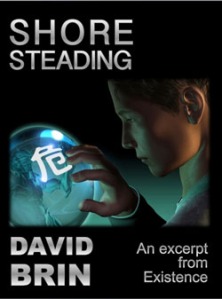 7. How do you think people would respond to the confirmed discovery of an alien artifact – with fear, hope, or exhilaration? How would such responses vary across the globe?
7. How do you think people would respond to the confirmed discovery of an alien artifact – with fear, hope, or exhilaration? How would such responses vary across the globe?
–Are some civilizations more open to change?
8. Brin gives a number of reasons why we have never been contacted by aliens. Which explanations do you find most plausible? Do you expect that we will experience “First Contact” during your lifetime?
–Would the discovery of alien races shift our perception of God, of religion, of hope or salvation? Would new technologies save us, disrupt things, or be dangerous?
9. Anthropologists have studied the often-traumatic after-effects when isolated tribes here on Earth were first exposed to the technologies of the developed world. How would earthly cultures change after contact with alien civilizations?
10. If aliens delivered a gift – one piece of advanced technology — what would you hope for? What questions would you like answered?
–Or would we feel “cheated” if advanced aliens solved our problems for us?
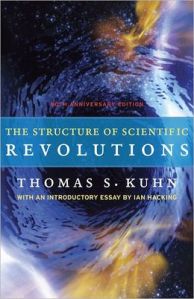 11. Repeatedly, scientific discoveries have shifted humanity’s image of its central place in the universe. Galileo showed that Earth was not the center of the universe. Darwin showed that humans are part of the evolution of nature.
11. Repeatedly, scientific discoveries have shifted humanity’s image of its central place in the universe. Galileo showed that Earth was not the center of the universe. Darwin showed that humans are part of the evolution of nature.
–Can you think of other advances that have shifted scientific “paradigms” or models of the world? Do those shifts always “humble” us? Or might we be special after all?
12. If a visiting alien race called a select group of human volunteers on a one-way trip to visit their homeland, would you volunteer? Do you know others who would?
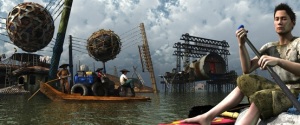 13. Brin portrays a world facing global warming and rising ocean levels. How do you envision the world changing if present trends continue? How will populations/agriculture shift? How will you prepare and get ready for change?
13. Brin portrays a world facing global warming and rising ocean levels. How do you envision the world changing if present trends continue? How will populations/agriculture shift? How will you prepare and get ready for change?
14. Smart glasses that project data, maps and messages seem to be within reach. AI or artificial intelligence is pervasive in the world of Existence. How do you see this always-connected world changing how you live your life?
 15. Can we maintain both freedom and privacy? If the cameras get smaller, faster, cheaper and more numerous every year, should we restrict the power to see-all to some elites? The government or the rich? If we pass laws to banish them, will that stop elites from seeing? Or will those laws just ban us from sharing the power to see-all? Should everybody get to use them and keep an eye on each other?
15. Can we maintain both freedom and privacy? If the cameras get smaller, faster, cheaper and more numerous every year, should we restrict the power to see-all to some elites? The government or the rich? If we pass laws to banish them, will that stop elites from seeing? Or will those laws just ban us from sharing the power to see-all? Should everybody get to use them and keep an eye on each other?
16. Brin presents a rising oligarchy — a powerful group of wealthy individuals/corporations who seek to control humanity’s destiny. This was the standard model for most of human history. Is this realistic in the modern world? Can we use the tools of openness and transparency to keep tabs on a powerful elite?
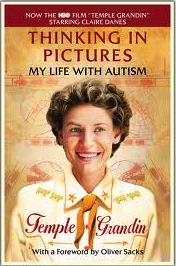 17. Brin presents autistic individuals empowered by future technologies. Do you think that technology can help autistic individuals and others with handicaps to achieve their potential? See praise for the book from Temple Grandin. Does one such expert mean the book was accurate in its portrayal of empowered autistic people?
17. Brin presents autistic individuals empowered by future technologies. Do you think that technology can help autistic individuals and others with handicaps to achieve their potential? See praise for the book from Temple Grandin. Does one such expert mean the book was accurate in its portrayal of empowered autistic people?
18. Some of Brin’s other books such as Startide Rising and The Uplift War center around genetically-uplifted dolphins and apes who become citizens and fly starships. Can Existence be viewed as a prequel to these books? Would it be desirable to increase the intelligence of these animals – not to be slaves but to join us as equals? Or do you find this concept disturbing? Would people oppose it from both left and right? Would the potential rewards, centuries from now, be worth the cost?
 19. In Brin’s novel The Postman – and in the film by Kevin Costner – people miss civilization and fight to restore it. Is that too optimistic a view of human nature?
19. In Brin’s novel The Postman – and in the film by Kevin Costner – people miss civilization and fight to restore it. Is that too optimistic a view of human nature?
–Do gloomy post-apocalyptic films seem more accurate to you? Which is more helpful and likely to produce effective action, cynicism or hope? Which is easier?
20. In Existence, the aliens inside the artifact come from races that have mostly died off. What fatal pitfalls might befall technological civilizations and lead to their downfall? Could humanity somehow manage to avoid these failure traps and rise up to explore the galaxy?
==A downloadable version of this Reading Guide can be found on my website.
See also a collection of Author interviews on Existence














Minor detail: In the book the rat is called Porfirio, but the jpeg on this page say Porfiro. Without the second I.
Also I have named one of my two latest rats Porfirio, after the rat in your book. When I had read Existence a year ago or so (from a second hand store) I knew that it was going to be the name of one of my future rats.
I didn’t know it was part of a trilogy..